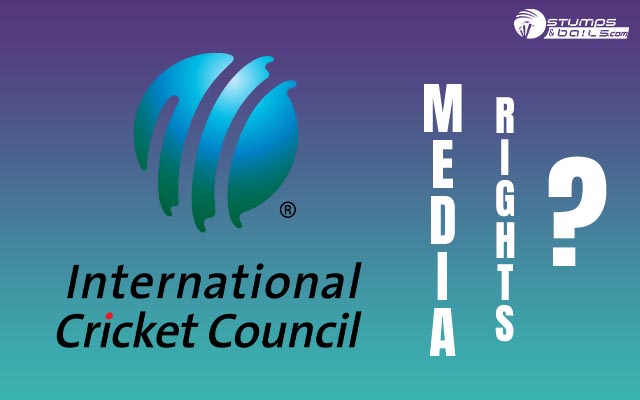The International Cricket Council (ICC) is asking broadcasters to submit a closed bid when the global governing body’s rights tender comes up for sale very soon, at a time when the BCCI has raised the bar for transparency by hosting an e-auction process for the sale of Indian Premier League (IPL) media rights.
The buzz around the sale of IPL media rights for a mind-boggling Rs 44,390 crore hasn’t died down yet, and another big-ticket ‘cricket rights tender‘ is on the way.
The ICC will issue its own global rights solicitation in less than ten days. In contrast to the typical procedure of issuing a global tender, the governing body is for the first time attempting to sell the rights across territories independently, beginning with the Indian subcontinent.
The goal of the maneuver, which is understandable, is to close the tender first in a country that accounts for around 70% of the game’s global income.
The IPL auction has piqued the interest of media broadcasters who made a pitch for it, as well as others who did not. However, a majority of these broadcasters have been active in recent weeks raising concerns about specific components of the tender in private meetings with the ICC.
The following points have been raised by the broadcasters, along with their justifications. The Times of India also spoke with ICC Chairman Greg Barclay about the issue, and his thoughts are outlined here.
The ICC has chosen to hold a closed bidding process
“Why not hold an e-auction, say broadcasters? The recent sale of IPL has demonstrated that an e-auction may assist in determining the best price. More significantly, why is the ICC unwilling to emphasize the phrase “transparency” in the same manner that the BCCI does, and properly so?
Barclay: That is the choice we have taken because we believe it is in the best interests of the ICC and, more importantly, the ICC members.”
Potential bidders must submit two different proposals, one for four years and the other for eight years, according to the ICC
Broadcasters question why two bids are being requested, one for four years and the other for eight years. In today’s world, blocking a rights cycle for eight years makes no sense, especially in a market where there are several takers, and technology is evolving at a rate that makes blocking rights for a longer period impossible.
Even if the adoption of an eight-year cycle were to be regarded as ICC’s “personal choice,” most broadcasters argue that it just adds to the complexity.
“We attempted to inquire of the ICC as to how they will decide between four and eight-year bids. What criteria will be used to decide the winner? – There are no clear answers because this will be a closed bid and the decision will be made by the broadcasters,” broadcasters say.
Barclay: Of course, I’m aware that some broadcasters hold opposing viewpoints and would like to do things differently. But they’re our rights, and we’ve decided to promote them, which, as I mentioned, is based on some quite significant study, guidance, and market knowledge. As a result, we’ve chosen to go to market on that premise.
The ICC will only make the winning offer official, not the names of the other bidders or the values that were submitted
Why the secrecy, broadcasters ask? Why is the ICC not being upfront about it at a time when we recently saw the BCCI conduct an auction when we knew who the other players in the room were? In today’s world, does a closed bid still work?
Barclay, Greg: Look, you can chat to anybody now, including a few administrators. They’ll be looking at things from a different perspective. Our internal team is quite capable, and they’ve sought outside advice.
The ICC’s perspective is that the best conclusion from the next cycle should be leveraged, and we feel that is the best strategy.
For the record, the ICC’s tender document is likely to state that after the closed bids are received – broadcasters having the option of submitting a four-year, eight-year, or both-year proposal – the ICC’s internal staff would review the bids and only divulge the winning bid and no further information.
As the rights are set to be released in a few days, this is the key point of contention among the broadcasters. According to those following events, the BCCI had also urged the ICC to hold an e-auction.



